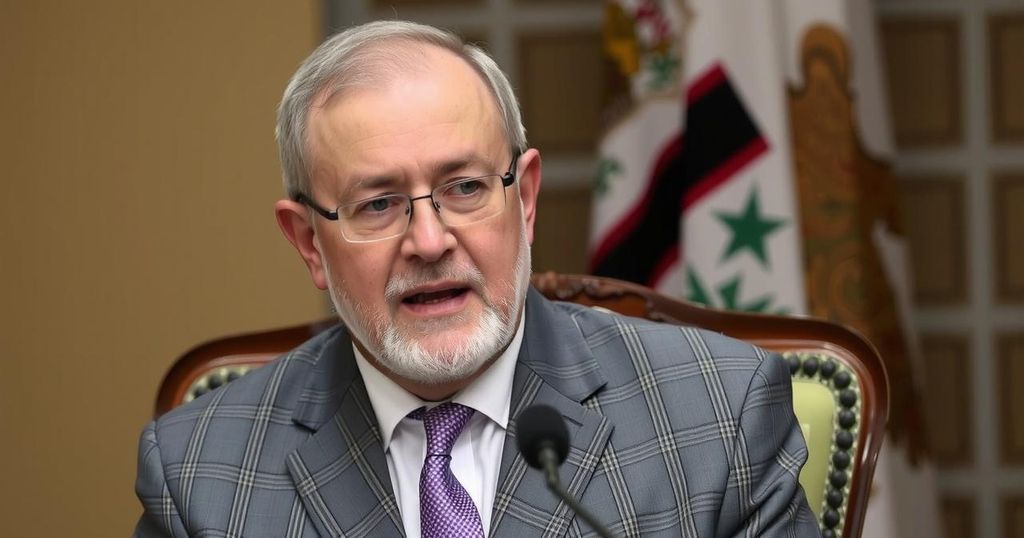Ahmed al-Sharaa, Syria’s new leader, estimates elections could take up to four years and a new constitution three years to draft. He emphasizes the need for stability and reassures minority communities, while navigating relations with Russia and hoping for lifted U.S. sanctions.
In a recent interview with Saudi state media, Syria’s newly established leader, Ahmed al-Sharaa, indicated that the organization of elections in the country could require as much as four years, while drafting a new constitution might take approximately three years. This marks the first time Sharaa has discussed the timeline for potential elections following the ousting of President Bashar al-Assad. Furthermore, he mentioned that significant changes for the Syrian populace may not materialize for another year.
Sharaa’s comments come on the heels of the Hayat Tahrir al-Sham (HTS) group’s successful offensive against Assad, concluding a lengthy civil war that spanned 13 years. The new government in Damascus is keen to dispel concerns regarding its Islamist origins and to assure neighboring states of its commitment to a more moderate political approach. While many Western nations have welcomed Assad’s removal, uncertainty looms regarding whether the HTS will adopt an approach aligned with strict Islamic governance or pursue democratic reforms.
HTS, formerly associated with extremist factions such as the Islamic State and al-Qaeda, is undergoing a transformation to present itself as a more moderate entity. Sharaa expressed intentions to dissolve HTS at an upcoming national dialogue conference, reinforcing the commitment to the protection of minority groups and stability amidst fears of sectarian conflict.
On the international front, Sharaa acknowledged Syria’s strategic ties with Russia, a key ally throughout the civil war. He reiterated the importance of enhancing bilateral relations and referred to ongoing negotiations concerning the status and operational conditions of Russian military bases in Syria. Additionally, Sharaa expressed hope that the incoming administration of U.S. President-elect Donald Trump would consider lifting economic sanctions against Syria. U.S. officials who recently visited Damascus described Sharaa as pragmatic and indicated a potential reconsideration of the $10 million bounty on his position.
The context of this article centers around the political landscape of Syria following the recent ousting of President Bashar al-Assad, an event that has raised numerous questions about the future governance of the country. The new leader, Ahmed al-Sharaa, heads the Hayat Tahrir al-Sham, a group that has undergone significant changes from its previous affiliations with extremist organizations. The discussions on elections and constitutional reforms signify a crucial pivot for Syria as it navigates the complexities of maintaining stability in a multi-ethnic society while addressing the concerns of both its citizens and the international community. Furthermore, the relationship with Russia is particularly delicate, given their established military presence and historical support for Assad’s regime. The responses from global powers and the internal dialogue about governance signify the critical junctures Syria presently faces.
In conclusion, Ahmed al-Sharaa’s statements highlight the intricacies involved in transitioning Syria towards a more stable and inclusive governance structure post-Assad. With the proposed timelines for elections and constitutional reforms extending several years into the future, the situation remains fluid. The challenges of addressing minority protections, international relations especially with Russia, and the prospect of U.S. sanctions all present formidable hurdles. The HTS leader’s commitment to moderate governance and national dialogue will be vital in determining the trajectory of Syria’s political evolution in the coming years.
Original Source: www.france24.com






